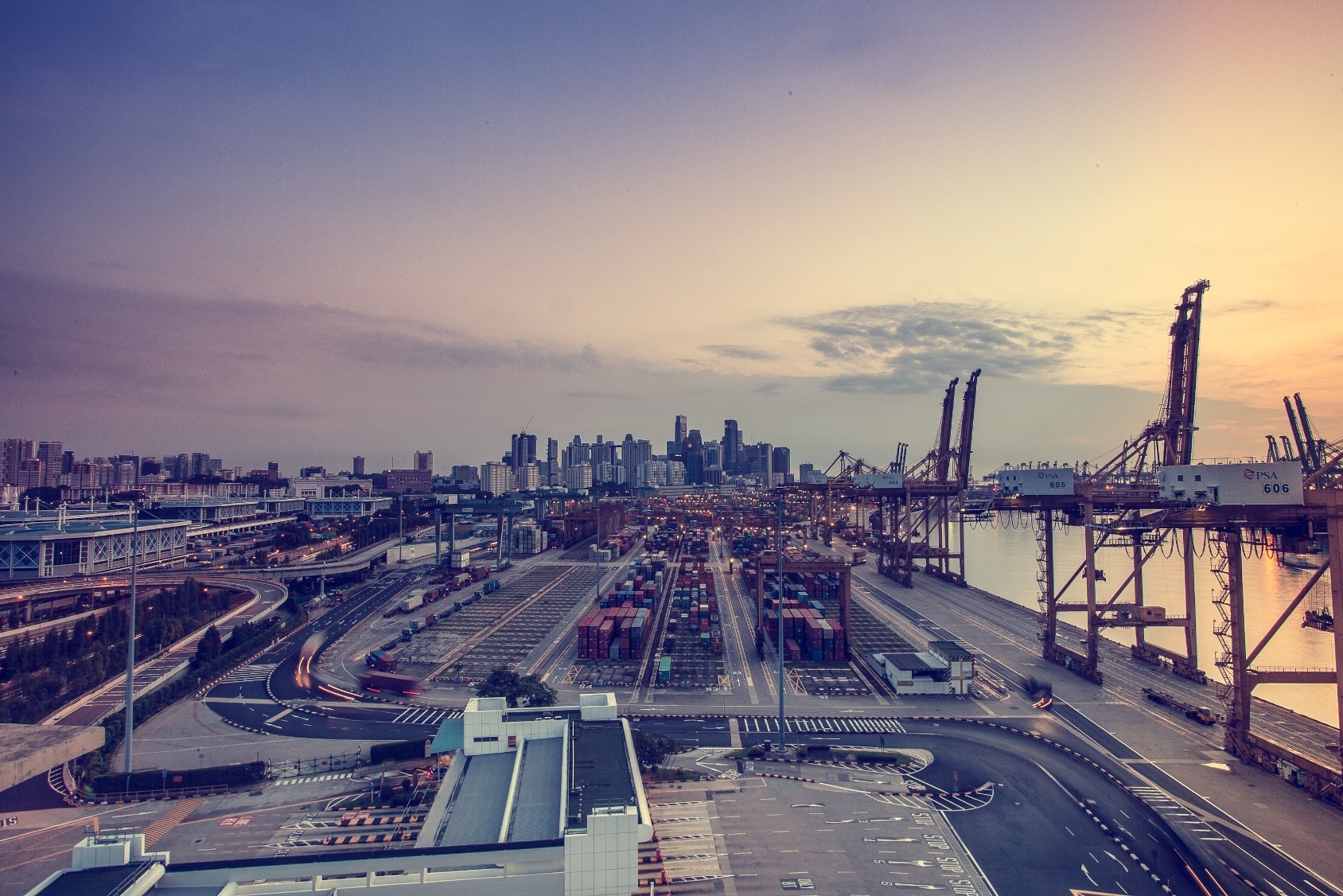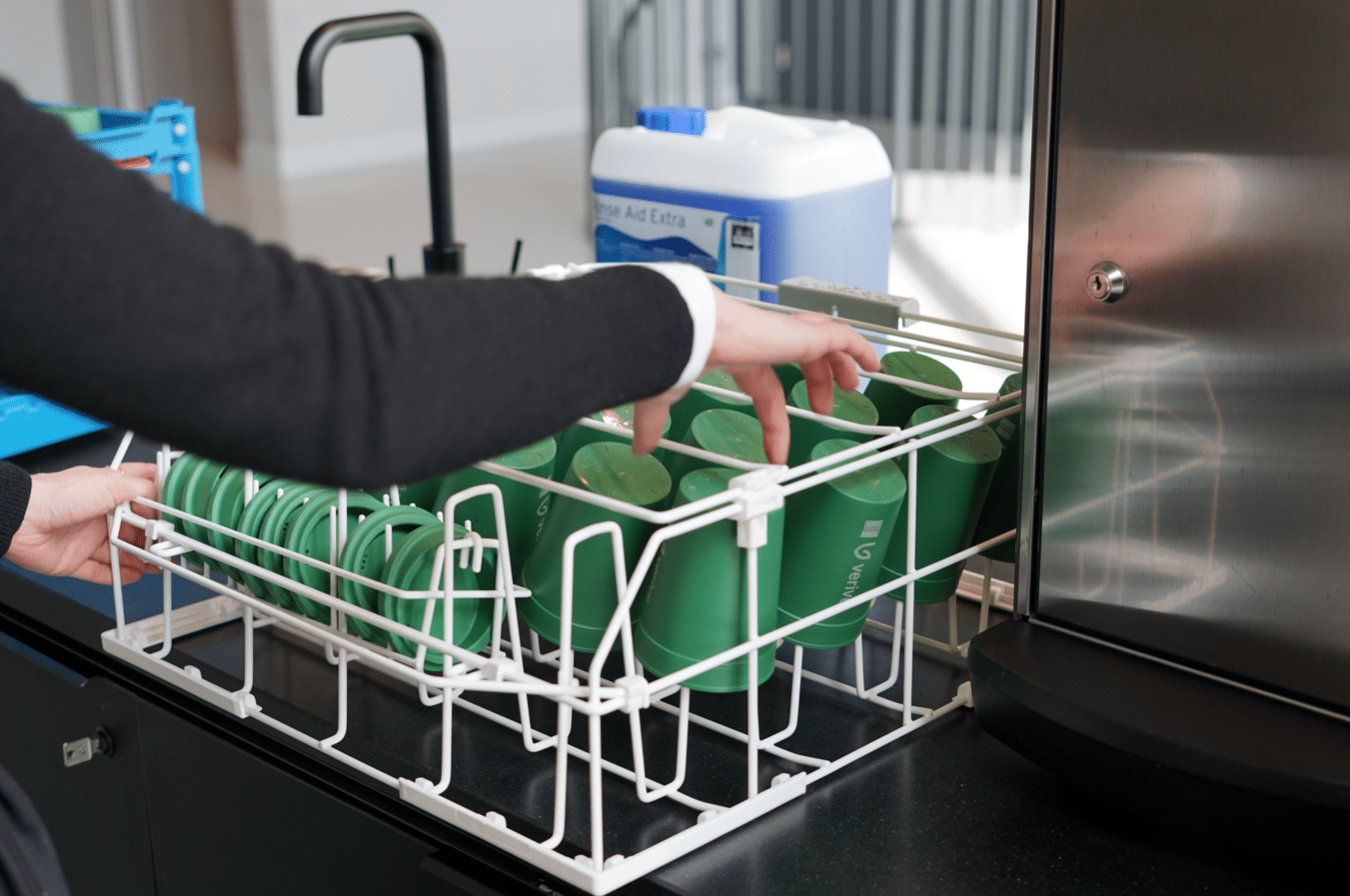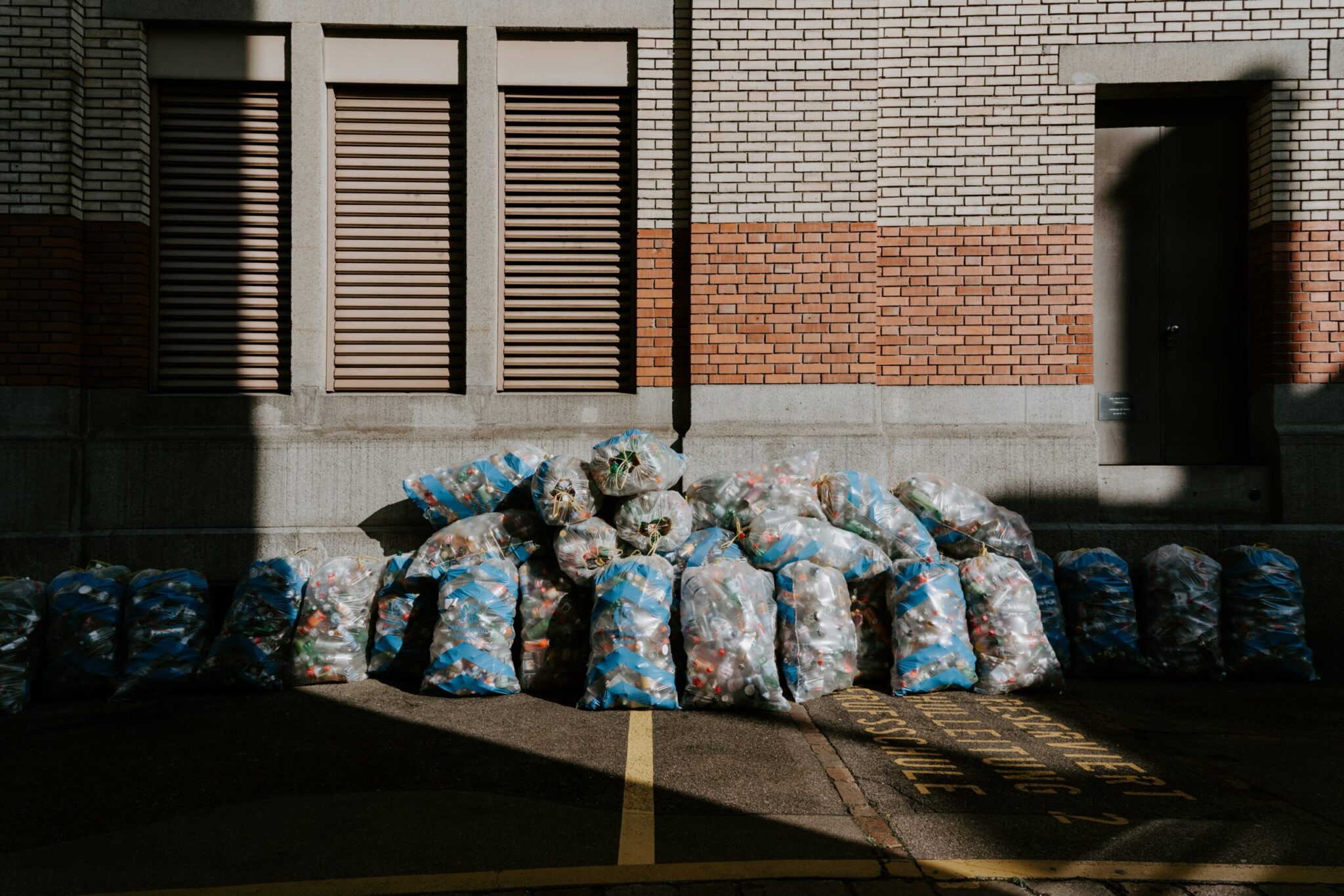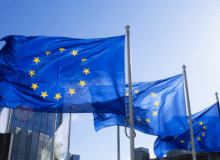About this article
Q&A with James Pitcher (Group Head of Sustainability) and Paul Stoker (Global Sourcing Director) on responsible sourcing
What does sourcing look like at Verive? When we talk about sustainability, a lot of it has to do with the way products are sourced. That’s why there’s a special sourcing team that knows all about finding the right suppliers who not only focus on quality and value, but doing the right thing.
To give you more insight in this process, we caught up with James Pitcher, Bunzl’s Group Head of Sustainability, and Paul Stoker, Bunzl’s Global Sourcing Director based in Shanghai, to find out more.
Hi Paul and James, thank you for taking the time to talk to us. It was difficult to schedule a meeting, as we’re dealing with some time difference. Where are you located currently?
Paul Stoker: You’re welcome, and that’s right. I’m currently in Shanghai, which is where our sourcing team is located.
James Pitcher: And I’m in the UK where the small Bunzl head office is based.
How many people are in the Verive sourcing team?
Paul: There are 34 of us over here in Asia, including myself. It’s a big team, looking after all of our own-brand products. The majority of the team here are Chinese or speak Mandarin as their first language. That’s important because we spend more than $1.1 billion with over 1,400 suppliers, the majority of which are in China.
We make sure the supplier meets our standards for responsible sourcing, looking at any issues associated with wages, modern slavery and child labour.
How do you choose which suppliers to work with?
Paul: We assess our suppliers on things like innovation and how progressive they are. We want to understand how a company is managed, who its customers are and how financially robust it is. Then, from a technical point of view, we want to know whether they’ve got the capability of producing a specific product and whether they have a good quality system in place.
If they are the right fit for us, we carry out a supplier audit.
There are two parts to this. First, we look at quality and management to understand whether the supplier can produce the same product repeatedly, to the same standard.
Then, there’s the all-important social accountability side of things. We make sure the supplier meets our standards for responsible sourcing, looking at any issues associated with wages, modern slavery and child labour. We also look at their environmental performance on issues like waste and pollution.
So, what sort of things are you looking for during that social audit?
James: We need to make sure that our suppliers meet all local legislative requirements, but also applicable international requirements for workers’ welfare and conditions of employment.
Paul: We want to know whether everybody is over the legal minimum age, and whether everybody is being paid properly.
Before we arrive, we ask our suppliers to prepare documents, including payroll, attendance and sickness records for all employees, which we then review.
We then interview a number of employees at random and ask a series of questions to make sure the experience of staff is supported by the documents.

What happens if they don’t meet your criteria?
Paul: Of course, if we saw evidence of something as serious as child labour, we would terminate an agreement immediately.
It very much depends on how a supplier might have slipped. It could be that the product quality is not consistent. We’d therefore put a product inspector within the supplier to help them get back up to speed.
We like to work with suppliers to help them improve and perform better.
Does this level of auditing apply to all new and existing suppliers?
James: About 60% of the initial Verive range will come from Asian suppliers, all of which must adhere to our supplier code of conduct, regardless of size of company or size of contract.
It is the responsibility of the supplier to make sure that our code is maintained in their own supply chains. And it’s a condition of doing business with us.
We always take a risk-based approach to auditing. If we’re buying products from the Netherlands, it would be a long time before we do a social audit of that factory because it’s a low-risk country with a good human rights record.
What about the other 40% of suppliers?
James: Well, we’ve focused our efforts on high-risk regions, with Paul’s team leading our auditing process.
The rest still have a good layer of protection as we like to work with local suppliers where there is more visibility. Of course, we also offer branded products from companies that already have their own robust sustainable procurement standards.
As we expand the range of Verive products, we will source a higher proportion of products from Asia, so the percentage of audited products will increase by default.

It’s about creating a relationship built on trust. Why do your suppliers have trust in Verive?
Paul: Because they know we are financially stable, and we’re very good payers. They also know there is the potential for big growth when working with us.
We are material and supplier agnostic and therefore work in the best interests of our customers.
Also, our quality assurance and control team is twice as big as our sourcing team. That is deliberate because we want to manage and mitigate the risk of buying from Asia. Knowing that we can talk directly to our suppliers, look them in the eyes and build a strong relationship with them should give our customers plenty of confidence.
How long have you been working in sourcing, Paul?
Paul: I’ve been buying in Asia for more than 20 years. When I first came to China, the airport had one lamppost outside that was flickering and gravel roads. Now, you can’t move on some of the motorways because they’re so busy.
What are the main advantages of sourcing from China?
Paul: The consistency and product quality are excellent. And there’s a real desire from the owners of our suppliers to improve, develop and invest for the future.
There is also an excellent attitude to customer service in China.
We engage directly with the true manufacturers as opposed to traders. Traders act as the ‘middlemen’ who might source from four or five different factories, so there’s no consistency of quality. We don’t do that.

Do you worry that your suppliers will fail to meet your high standards?
James: There is always a risk and we can never eliminate that risk fully. But we try to minimise it and improve our suppliers continuously.
Paul: I’m very proud to lead the quality team. The fact that we do things so thoroughly gives me so much pride.
How will your relationship with your suppliers evolve in the future?
James: As we continue our relationships with our suppliers, we will expect them to reduce their environmental and social impacts – to increase the amount of renewable energy that they use or buy, for example.
But our customers should have peace of mind knowing that we take sourcing incredibly seriously. Yes, we care about price, but we equally care about people and the planet.
You can find out more about Verive’s approach to responsible sourcing here. And if you’d like to delve into the Supplier Code of Conduct, you can find it here.









